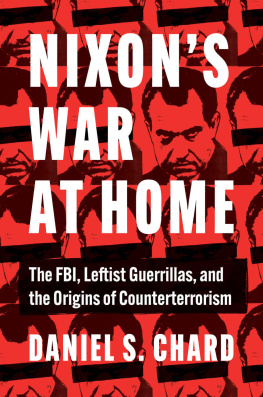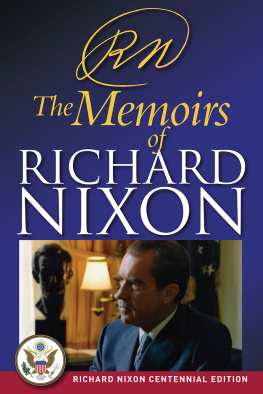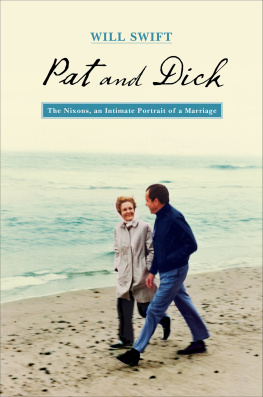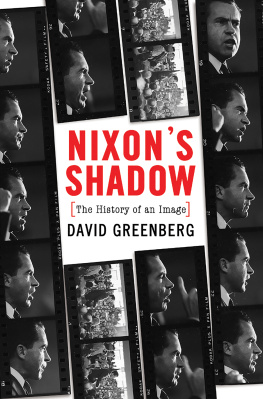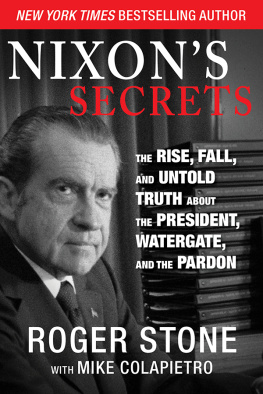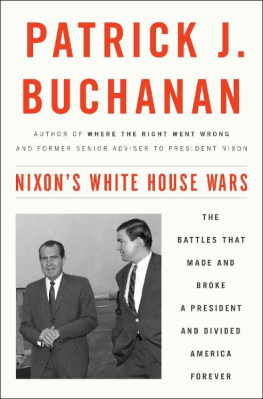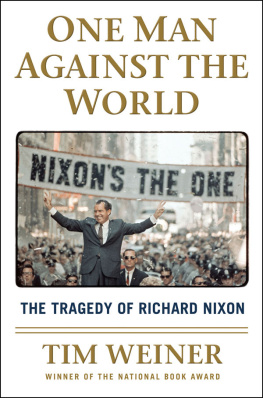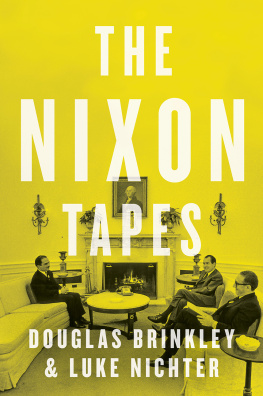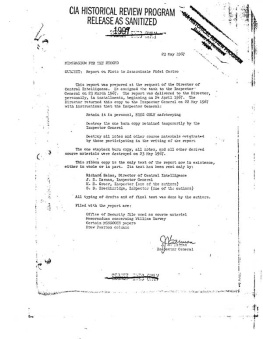Nixons War at Home
Justice, Power, and Politics
COEDITORS
Heather Ann Thompson
Rhonda Y. Williams
EDITORIAL ADVISORY BOARD
Peniel E. Joseph
Daryl Maeda
Barbara Ransby
Vicki L. Ruiz
Marc Stein
The Justice, Power, and Politics series publishes new works in history that explore the myriad struggles for justice, battles for power, and shifts in politics that have shaped the United States over time. Through the lenses of justice, power, and politics, the series seeks to broaden scholarly debates about Americas past as well as to inform public discussions about its future.
More information on the series, including a complete list of books published, is available at http://justicepowerandpolitics.com/.
Nixons War at Home
The FBI, Leftist Guerrillas, and the Origins of Counterterrorism

DANIEL S. CHARD
The University of North Carolina Press Chapel Hill
2021 The University of North Carolina Press
All rights reserved
Set in Charis by Westchester Publishing Services
Manufactured in the United States of America
The University of North Carolina Press has been a member of the Green Press Initiative since 2003.
Library of Congress Cataloging-in-Publication Data
Names: Chard, Daniel S., author.
Title: Nixons war at home : the FBI, leftist guerrillas, and the origins of counterterrorism / Daniel S. Chard.
Other titles: Justice, power, and politics.
Description: Chapel Hill : University of North Carolina Press, [2021] | Series: Justice, power, and politics | Includes bibliographical references and index.
Identifiers: LCCN 2021000641 | ISBN 9781469664507 (cloth ; alk. paper) | ISBN 9781469664514 (ebook)
Subjects: LCSH: Nixon, Richard M. (Richard Milhous), 19131994. | United States. Federal Bureau of InvestigationHistory20th century. | TerrorismPreventionHistory20th century. | TerrorismGovernment policyUnited StatesHistory20th century. | Left-wing extremistsGovernment policyUnited States. | Domestic intelligenceUnited StatesHistory20th century. | United StatesPolitics and government19691974.
Classification: LCC HV8144.F43 C4267 2021 | DDC 363.325/ 16097309047dc23
LC record available at https://lccn.loc.gov/2021000641
Cover illustration: Detail from a Peoples Assembly to Impeach Nixon flyer.
For L. and A.
The social revolution cannot draw its poetry from the past, but only from the future. It cannot begin with itself, before it has stripped off all superstition in regard to the past.
Karl Marx
Contents
Illustrations
Introduction
The Making of American Counterterrorism

These people are called what? These people who are doing these bombings on campuses, these anti-Vietnam War people, people that are trying to overthrow our Government and get rid of the Capitalist system. Theyre called, well, militants revolutionaries, radicals, Commies, Pinkos, weirdos, beatniks I mean theres all sorts of terms.
In the early 1970s, the word terrorism creeps into our vocabulary. All of a sudden these people are all sort of lumped into the word terrorism.
FBI special agent William E. Dyson
Insurgent violence, carried out by rebels with political grievances against state authorities, has come and gone throughout history. But in the late twentieth century it transformed into something new. It was not until the 1970s that police agencies and state officials began to explicitly frame some forms of insurgent violenceparticularly bombing, airplane hijacking, and hostage takingas something called terrorism. As leftist guerrilla insurgents raged in the United States and throughout the globe, police investigators, state officials, and policy experts invented the modern concept of terrorism as a problem distinct from other forms of violence, criminality, and political activity.
Transforming insurgent violence into terrorism amounted to more than just giving a new name to an old tactic. The concept of terrorism enabled U.S. state officials such as Federal Bureau of Investigation (FBI) director J. Edgar Hoover and President Richard M. Nixon to revive and legitimize intrusive mass surveillance tactics previously used against Communists. Framing insurgent violence as terrorism also helped authorities develop new strategies, institutions, and policies to counter what they defined as a distinct, urgent threat to U.S. national security.
By the late 1970s, such state efforts had a name of their own: counterterrorism. The term refers to active police operations designed to preempt terrorismthat is, detect violent attacks and stop them before they happen. Such operations are sometimes contrasted with defensive antiterrorism measures intended to identify terrorists at borders, ports, and airports. In addition to obtaining intelligence that can give officials advance warning of terrorist attacks, counterterrorism operatives seek to neutralize organizations capacity to engage in political violence, and ultimately to destroy them altogether.
Preemption was and is central to counterterrorism. Those who lived through the 9/11 attacks and the presidency of George W. Bush may recall that preemption was the underlying principle of the Bush Doctrine used to justify Americas 2003 military invasion of Iraq. Preemption was also the goal behind the mass electronic surveillance established by the National Security Agency (NSA) and other U.S. intelligence agencies after passage of the PATRIOT Act of 2001. Today counterterrorism is a major industry, with counterterrorism units embedded in more than 1,000 federal government organizations, as well as in state and municipal police departments and roughly 2,000 private companies.
Though Americas counterterrorism apparatus ballooned after 9/11, U.S. counterterrorism first emerged in the 1970s in response to homegrown leftist guerrillas. Its development was deeply influenced by the Weather Underground and the Black Liberation Army (BLA), clandestine armed organizations that splintered off from the New Left and the Black Power movement, respectively, of the late 1960s and early 1970s. Violent conflicts between the United States and these political dissidentsover issues of global power, racism, and economic inequalitywere the crucible in which the tactics, doctrine, and sprawling bureaucratic structures of counterterrorism were forged.
Guerrillas and the State
The pages that follow will trace the origins of counterterrorism to violent conflicts in the Cold War era. This history will show how the U.S. war in Vietnam and police brutalityparticularly directed against African American communities and political activistsmotivated a small number of American leftist radicals to import strategies of clandestine urban guerrilla warfare from revolutionary anti-imperialist movements in Asia, Africa, and Latin America. It will also illustrate how U.S. leaders neglected to build lasting alternatives to the state violence, racism, and poverty that many liberals, leftists, and social scientists of the late 1960s identified as root causes of violent social conflict.
For U.S. officials, the response to civil disorder and insurgency was to surveil, police, and incarcerate the crisis. FBI and White House officials developed what would become counterterrorism in the context of Nixons law-and-order crackdown on the Black Power movement, the antiwar movement, and other social movements of the era.
Next page
